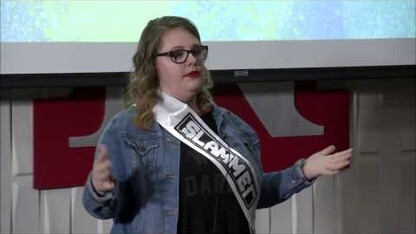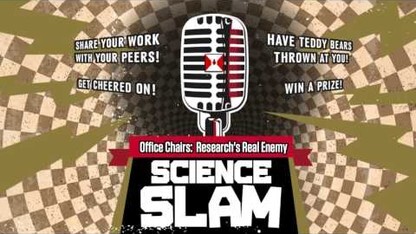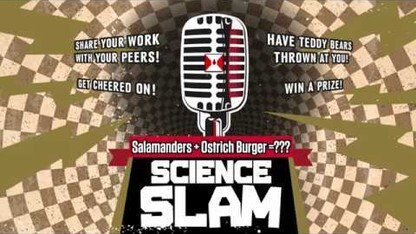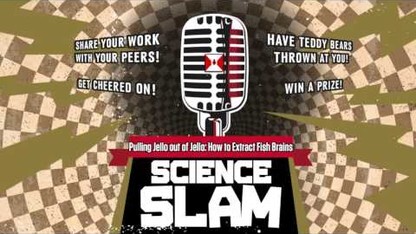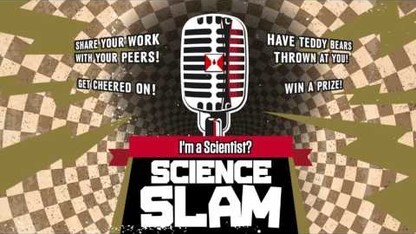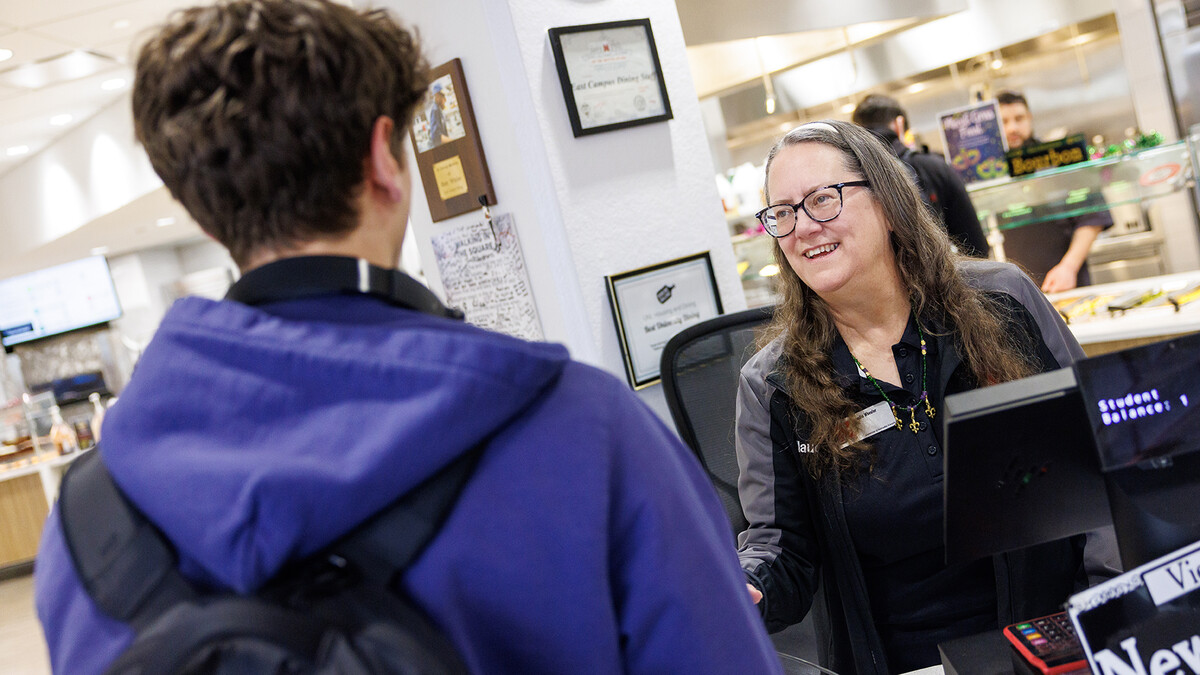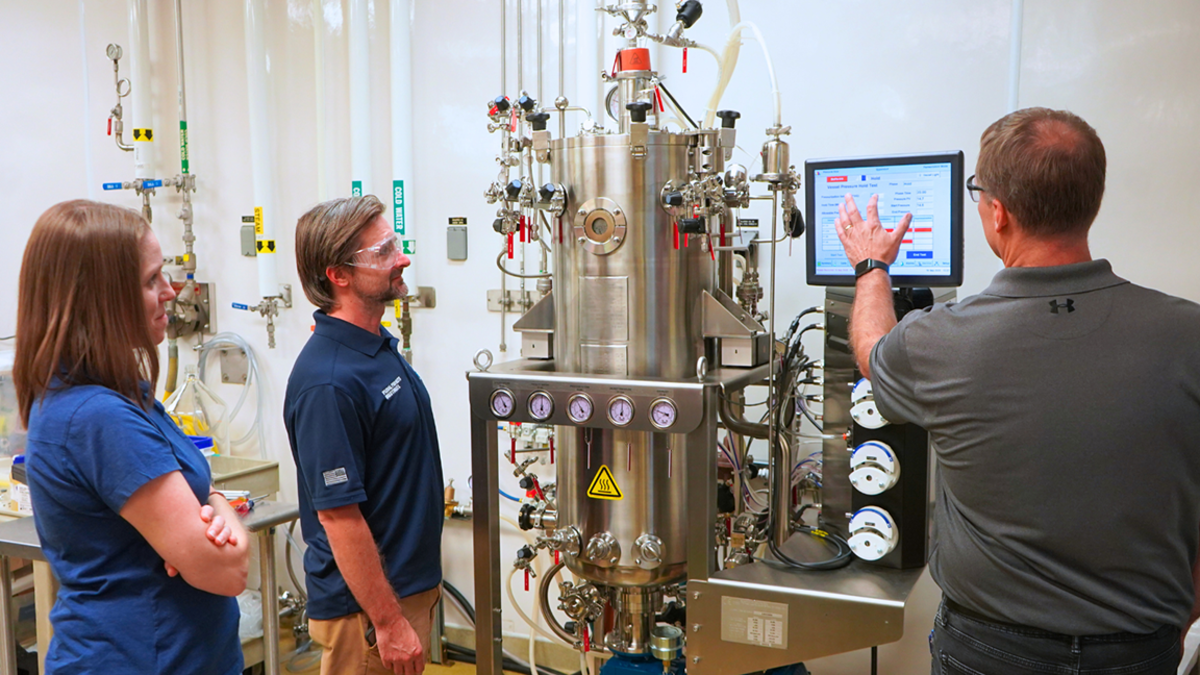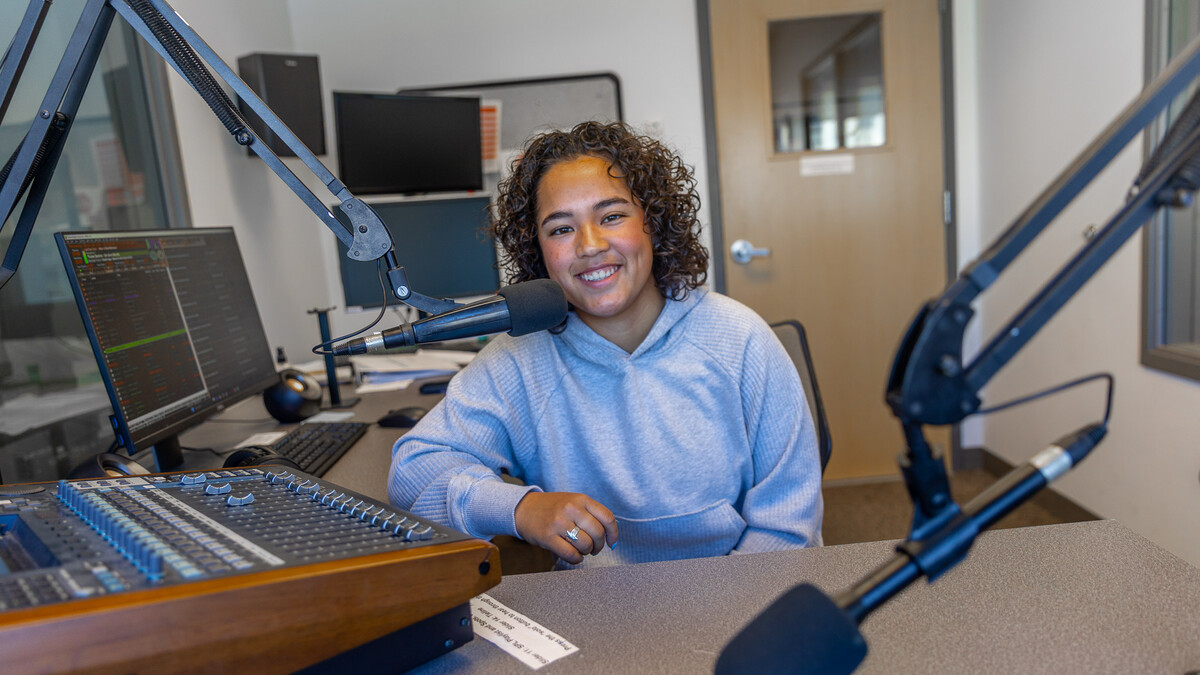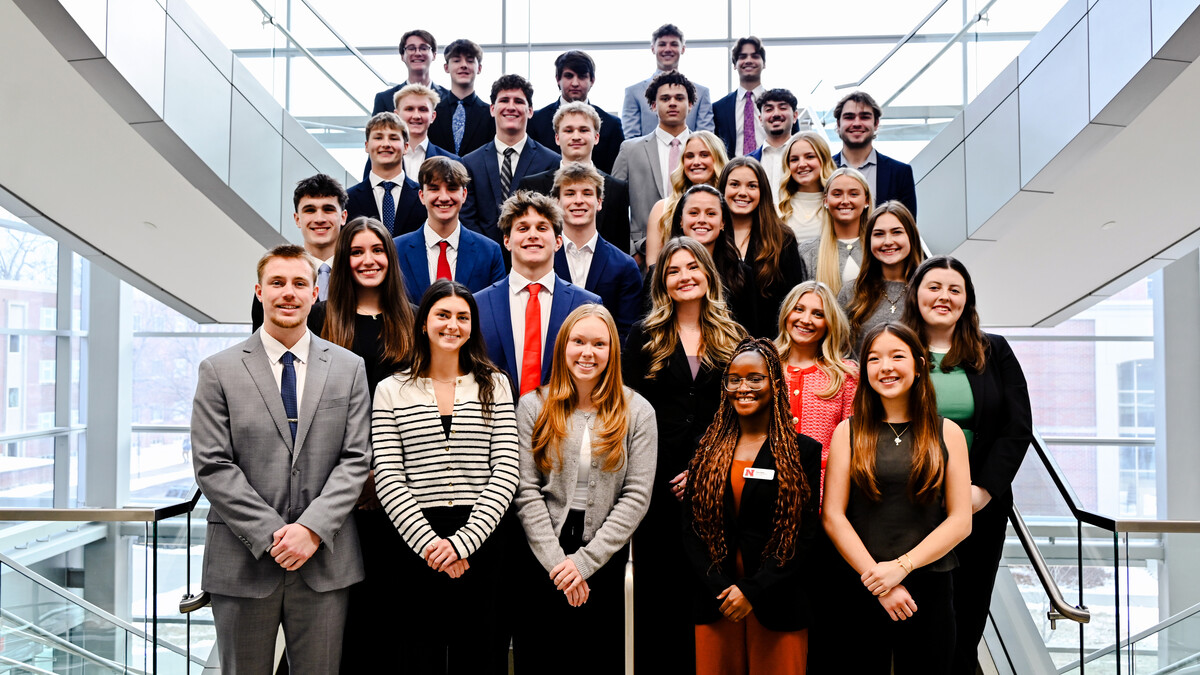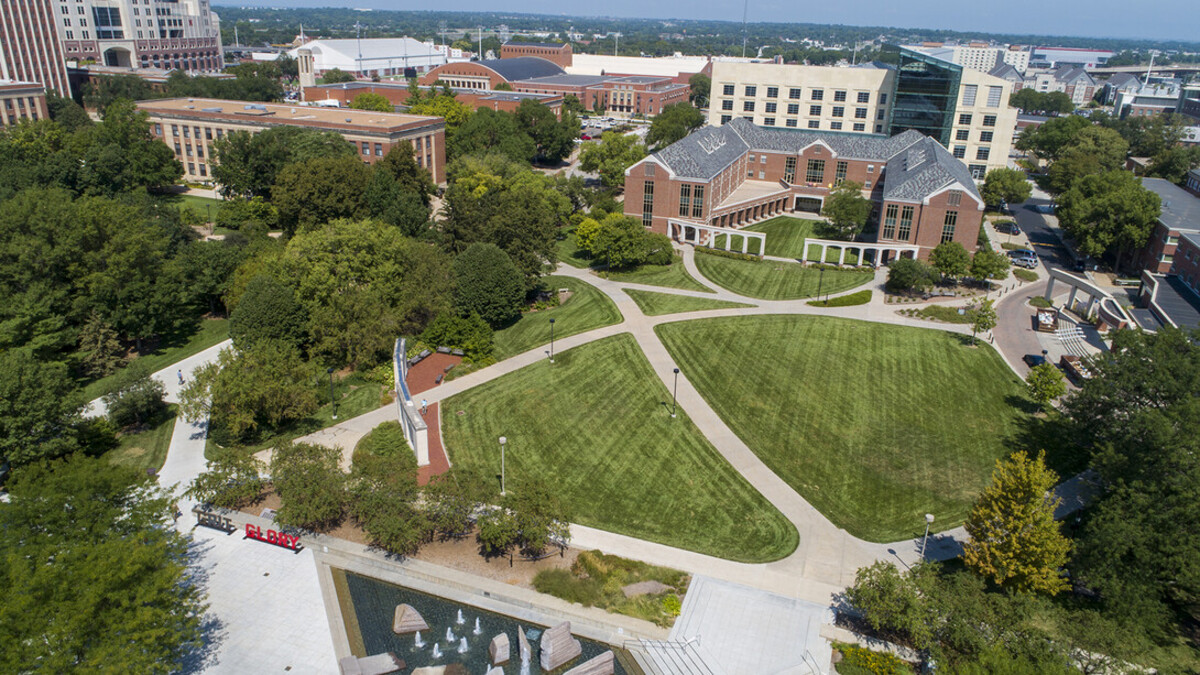
As she nearly disappeared under a barrage of miniature teddy bears, the last bars of her “Ice, Ice Baby” homage still reverberating in the ears of her audience, it became clear that Colleen Ray would win the University of Nebraska-Lincoln’s second annual science slam – just as she’d predicted minutes earlier.
A graduate student in sociology, Ray competed against four other researchers in the April 10 event at the Nebraska Union. The participants – one undergraduate, three grad students and a postdoctoral researcher – took turns explaining the biggest stumbles they had endured while learning to conduct research.
And in the spirit of the science slam format, which first emerged in Europe and has recently begun to take hold in the United States, the presenters aimed to both inform and entertain the roughly 100 people in attendance.
“This is very much designed to be the anti-academic conference,” said organizer Jocelyn Bosley, assistant director for education and outreach at the university’s Materials Research Science and Engineering Center. “We’re taking great pains to create that atmosphere, with the teddy bears and lunch and the whole deal.”
Those teddy bears represented the science slam’s positive spin on rotten tomatoes, with audience members flinging them at the presenters whenever they liked what they heard.
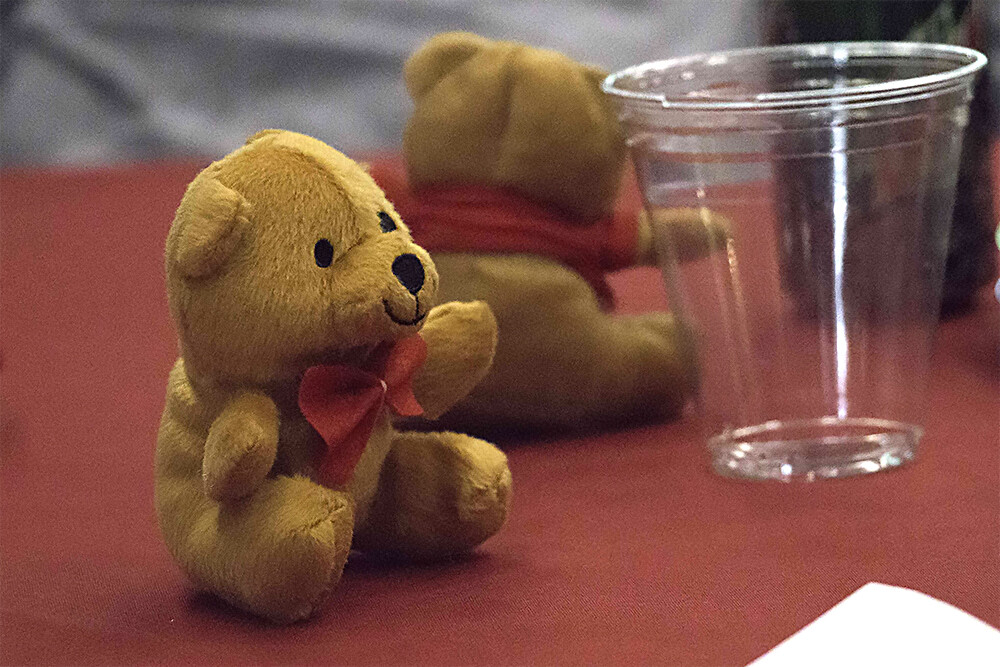
Dozens rained forth while Ray talked and rhymed the audience through 20 years of false-starts about what she would become when she grew up. In elementary school, she wanted to study primates as the next Jane Goodall – before realizing she didn’t enjoy the outdoors and wasn’t really an animal person. In junior high, her aptitude for algebra had her considering the life of a mathematician. In high school, a part-time job in daycare launched dreams of becoming a pediatrician – until her first college chemistry class made her reconsider.
As she retraced her winding path, Ray modified rhymes made famous by the Fresh Prince of Bel-Air, Run-DMC and Vanilla Ice. By the time she had finished, teddy bears littered the floor and Ray was walking away with the $250 first-place prize.
“I think the casual observer would expect grad students and younger scholars to be more into this kind of thing, but in my experience, it almost tends to be the opposite, because they’re still in this kind of professionalizing mode,” Bosley said. “They’re learning to think of themselves, and have people think of them, as grown-up scientists. They’re really trying to establish their credibility. But too often, credibility and having teddy bears thrown at you in a forum like this seem mutually exclusive.”
Lisa Poppe, a graduate student in biological sciences, channeled this sentiment during a talk titled “I’m a Scientist?”
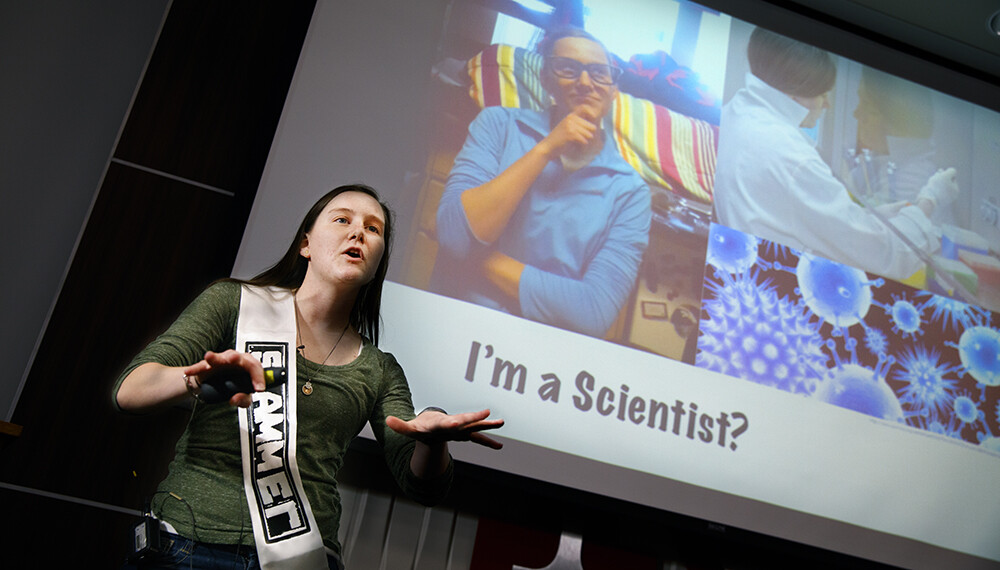
“I have a confession: I don’t always feel like a scientist,” Poppe admitted to the audience. She went on to explain how a 30-minute conversation with her brother, who knew nothing about her virology research, helped Poppe learn to communicate her work without overgeneralizing it.
“A lot of times we talk about making their research accessible to a broad audience, and that’s OK,” Bosley said. “But I’ve started substituting ‘meaningful’ for ‘accessible.’ ‘Accessible’ makes it sound like you have to take something away and bring it down to somebody else’s level. That’s one reason that sometimes scientists struggle to do this, because they feel like if they’re leaving out details, they’re not doing the science justice.
“If you think about making it meaningful, you’re adding something. You’re not subtracting; you’re actually taking your science and adding a layer to it that can make it relatable to other people. That’s what we focus on encouraging our participants to do.”
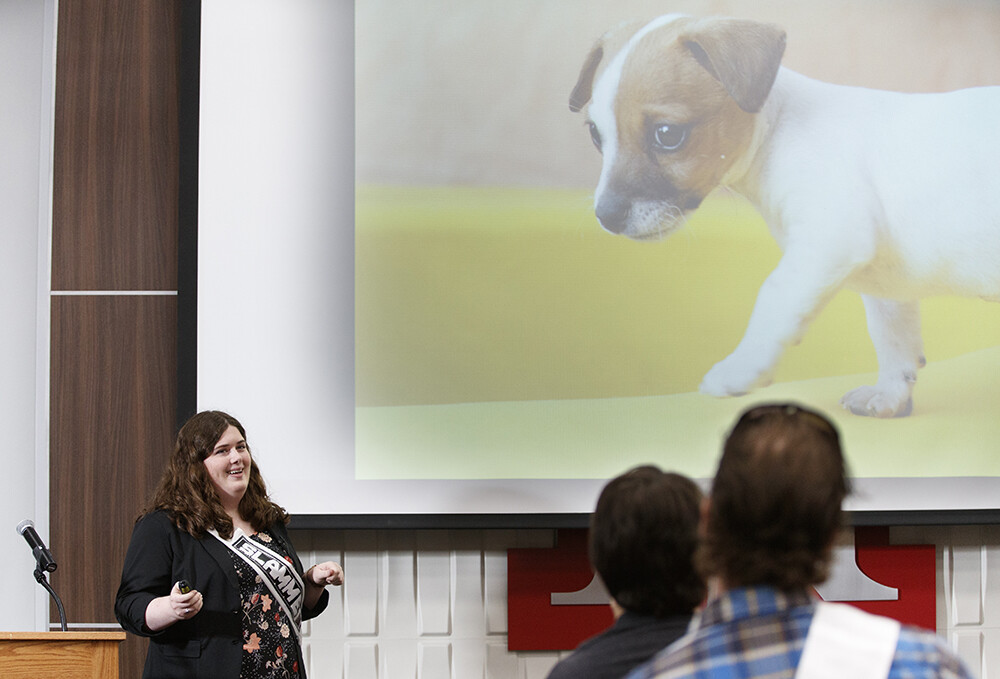
Graduate student Catie Brown connected with the audience by relaying an all-too-familiar scenario: the realization that an absent-minded swivel in an office chair had unplugged the power to her computer and lost her hours of data that she could not recover. Rachel Lukowicz, a senior at Doane University, explained the frustrations of removing zebra fish brains to study their fear responses – a process she compared to extracting Jell-O from other Jell-O with a pair of tweezers. And postdoctoral researcher Tom Luhring detailed how battling a mysterious allergic reaction helped him realize the perils of making assumptions, whether in the field or the lab.
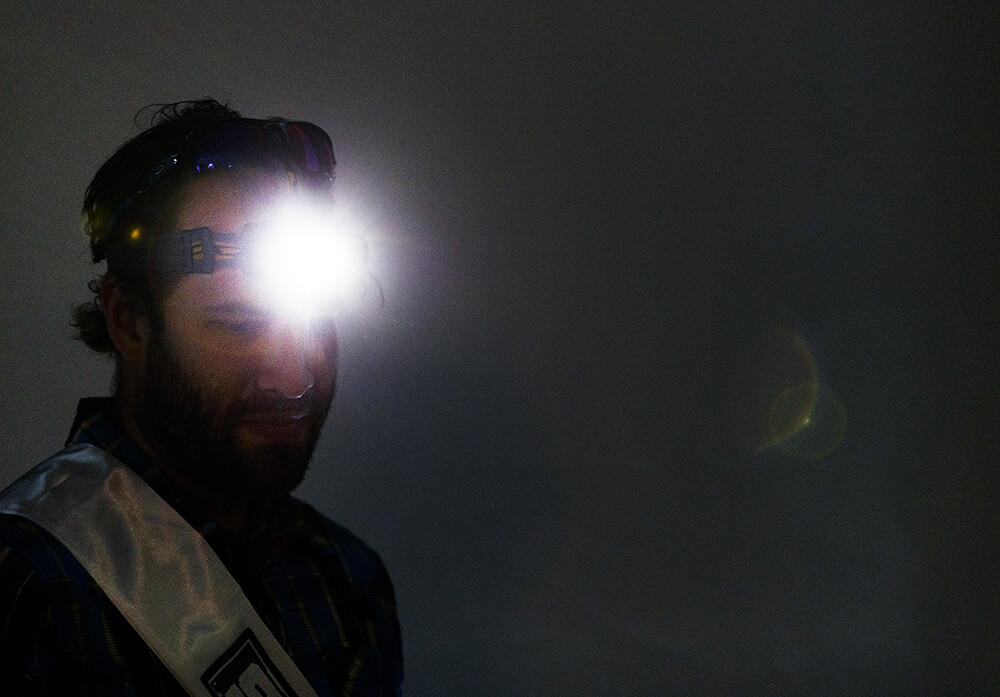
All of the finalists earned cheers, bears and $50, but in the end, Ray followed through on her opening rhyme:
“Now this is the story all about how my life got flipped, turned upside down/ So I’d like to take a minute, just sit right there/ I’ll tell you how I became the Science Slam winn-aire.”
